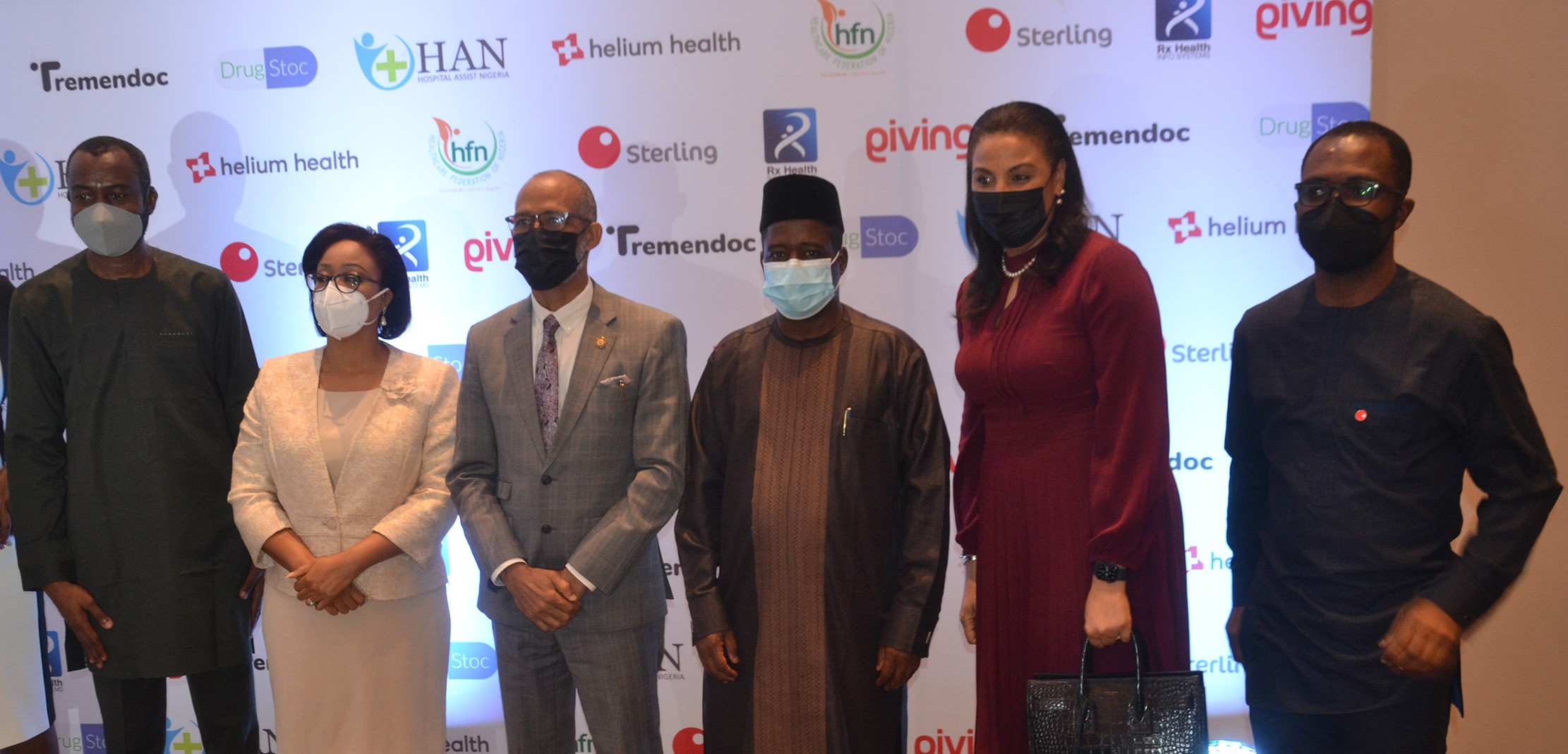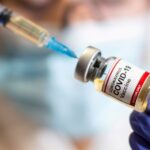Managing Director and Chief Executive Officer (MD/CEO) of Sterling Bank Plc, Mr. Abubakar Suleiman, has called on players in the private sector to provide vigorous support to the ongoing Covid-19 vaccination exercise so that more people could get vaccinated and drive a speedier reopening of the economy.
He made the call while addressing participants at a seminar in Lagos with the theme: Closing the gap in Covid-19 Vaccination, organised by Sterling Bank in collaboration with the Healthcare Federation of Nigeria (HFN), Tremendoc and Helium Health, among others.
Suleiman who spoke on the sub-theme: “Economics of a Successful Covid -19 Vaccine Intervention,” remarked that those who will benefit significantly from the opening of the economy must pay for those who cannot afford to pay to be vaccinated so that the economy can function again.
- COVID-19: Don’t allow fear of side effects discourage you from vaccination, NPHCDA urges Nigerians
- COVID-19: FG adds S/Africa to travel restriction list
According to him, “The money which the government must put out is not for vaccination per se even though that is what it is buying. It is to ensure that the economy does not go back into a lockdown with its attendant social crisis in forms of massive unemployment and security challenges. Then, suddenly we are able to find one or two billion dollars when we could not find one million dollars because we did not do the vaccination.”
He said, “For Sterling Bank as a corporate, we have remained committed to the vaccination exercise by participating in every single path of the fight against Covid-19.”
“We participated in activating the testing centres and some of the first experiments that Biobank did. We have actively participated in fixing isolation centres and in contributing to CACOVID. One of our most important feats is our set up of a Health Workers’ Fund for the health care experts at the forefront of tackling the coronavirus.”
Suleiman said the Nigerian government is not just fighting a pandemic but also trying to restore the economy back to normalcy.
“What has really struck me as an observer is that there are talks about the possibility of having a third wave of the Covid-19 but unfortunately our people do not realise that we are fighting an invisible enemy,” he added.
The Sterling Bank helmsman said there is need for federal and state governments as well as members of the public that have the wherewithal to find the money to ensure that a greater percentage of the population is vaccinated.
He said they should look at the vaccination from the perspective of what they are going to lose if a greater percentage of the population is not vaccinated, adding that the value of the vaccination is only useful if everyone has been vaccinated to get the economy can function again.
Also speaking on the National Covid-19 Vaccination Strategy, a member of Presidential Steering Committee, Dr. Muktar Muhammed, said there is need to re-strategise so that the private sector could work with public sector for the overall goal of ensuring that more people are vaccinated.
He said the vaccination programme should be refocused so that more people could be vaccinated in population dense cities like Lagos, Kaduna, Kano and Port Harcourt.
Muhammed said the federal and state governments should be more engaged in regulation to ensure procurement of genuine vaccines for the citizenry.
Lagos State Commissioner for Health, Dr. Akin Abayomi, said there is a need for the state government to partner with the private sector in a bid to pull resources, manpower and logistics to procure more vaccines for distribution and administration. He added that if India is currently doing one million vaccinations daily, Nigeria can raise its level to about 300,000 people daily in a bid to attain the 60 percent herd immunity stipulated by the World Health Organisation (WHO).
He said at the current level of 8,500 vaccinations daily, it would take the state up to 2026 to attain the recommended 60 percent herd immunity, which is unacceptable.
He said Lagos State is vulnerable to the spread of the disease because it is a major point of entry for foreign travellers into the country and harbours large urban slum dwellers as well as its high population density, among others.
President of HFN, Dr. Pamela Ajayi, said given the scale and complexity of the vaccination programme, there is need for private sector players to significantly augment government capacity across the value chain of vaccine procurement, distribution, and administration, adding that vaccines are specialised ethical pharmaceuticals.
In her contribution, Dr. Clare Omatseye, President of West African Private Healthcare Federation, noted that Covid-19 showed that Nigeria and Africa were not prepared to tackle a pandemic and the way forward is for governments to engage with the private sector in its vaccination roll out.

 Join Daily Trust WhatsApp Community For Quick Access To News and Happenings Around You.
Join Daily Trust WhatsApp Community For Quick Access To News and Happenings Around You.


